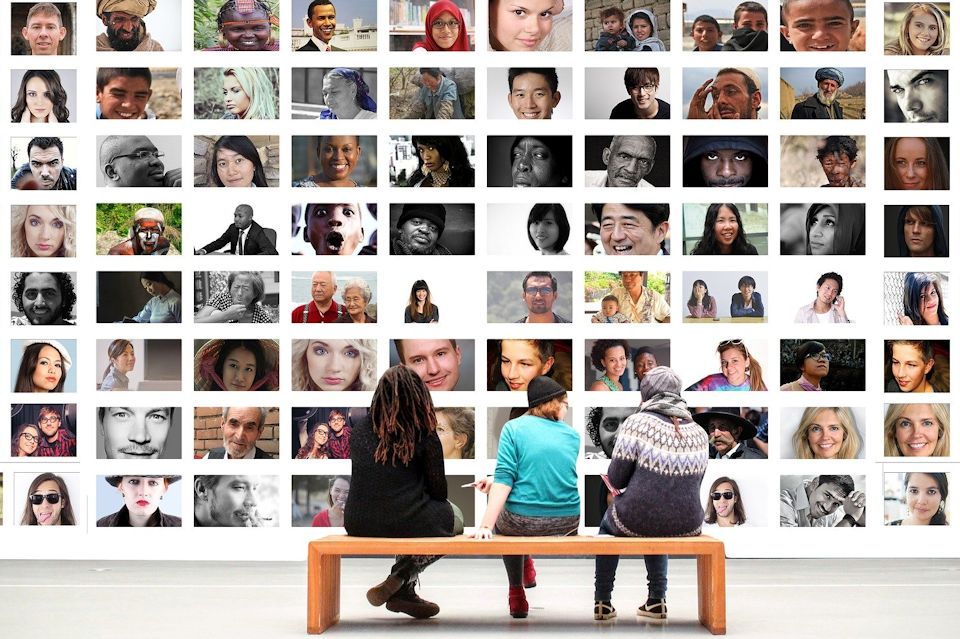Naomi Garcia examines scripture and encourages others to join her in the anti-racism initiative of The Michigan Conference. It’s the third way; a Jesus thing to do.
NAOMI GARCIA
Michigan Conference
Jesus told them a parable: ‘Can a blind person guide a blind person? Will not both fall into a pit?’ (Luke 6:39 & following)
I frequently receive that scripture as a reference to those who are similarly infirmed, imperfect, or flawed. Depending solely on people just like me is foolish, naïve, and not-very-smart. Yet, I don’t recall much sense made of why this matters. The illusion of social constructs for the convenience of power-hoarders is snuffing out Divine design. This sorting and ostracizing are contrary to abundant community.
Today, I hear that text as an invitation to diversify; to surround myself with people who are differently-abled than I am. One’s physical ableness is only one aspect of many in relational diversity.
‘A disciple is not above the teacher, but everyone who is fully qualified will be like the teacher.’
Exactly! In my own innate God-designed self, I am the expert of my life’s experience. I’m the sole party who can mourn and grieve my own mistakes, regrets, and if-only-s for my own healing. I’m the one to find the groove of my voice. I’m the only one who can decide how I choose to show up in my important relationships. This –voice, expertise, and choice—is my qualified-ness for being my true self. In the Christian faith tradition, Jesus demonstrated this in extra fine ways.
‘Why do you see the speck in your neighbor’s eye but do not notice the log in your own eye? Or how can you say to your neighbor, “Friend, let me take out the speck in your eye” when you yourself do not see the log in your own eye? You hypocrite, first take the log out of your own eye, and then you will see clearly to take the speck out of your neighbor’s eye.’
Luke’s record of Jesus’ exaggerated imagery registers an unexpected smile. The silliness and irony of the obvious caught me by surprise on this occasion of receiving it. I felt gently reminded we are all having variations of the same ailment. Most of our social energy is typically expended on bonding through our shared victimhood. The commonality of binary thinking –insisting there are only two options to an issue—is not true. The stick-together-or-die binary is contrary to the gospel. This binary thinking has a life of its own because we allow it.
A third way, a more excellent way, the better-together-in-our-diversity option is all about the eternal aspiration for something more than the familiar. Choosing the comfort of familiarity just because it’s familiar is contrary to my experience of Divine design. The pressure to fit in is insidious. It’s the stuff of a slow death. Seeking one’s Divine design, by contrast, is life-giving. Raising my tolerance of my own discomfort is foundational to separating myself from the life-depleting practices of social pressure to fit in. As isolating as this often feels in a low-trust faith community, belonging to The Divine’s kin-dom over time is more to my liking.
Attending to my own unbinding and unlearning prepares me to access my agency, expertise, and choice while I’m in the company of others doing the same. Within a high trust relationship system of many able-nesses, we’re more likely to perceive multiple and viable third ways. This feels like a variation on parallel play: young children playing next to each other in adjacent physical spaces doing their own thing. A child’s exposure to the noises, words, phrases, and ideas from other children seamlessly shows up the child’s play. The co-influential, unguarded, and unique nature of parallel play is akin to doing one’s own work among like-intended others. Unlike parallel play, we can choose over and over to re-shape what enters our shared awareness. This shaping nurtures our discipling one another closer to manifesting Jesus-ways of being.
The log-in-your-own eye parable challenges me to tell myself the truth. I’m reminded of my own likelihood to dismiss the downside of my comfort zone. Those parts of me that are so familiar that I don’t perceive them stealing my agency. These parts are internalized separation, assimilation, exclusion, sorting out, denial, and blaming others for all my disappointments and social failures.
A third way diversifies my breadth of important relationships to include persons different from me in appearance, speech, life experience, coping mechanism, thought-angles, aspirations, etc., is being like Jesus. Changing my earthly lifestyle to be curious about many others’ life-ways is the disciple’s privilege. The Michigan Conference’s anti-racism plan to actively equip its people to live and breathe such a breadth of important relationships is timely.
I’m in. You?
Last Updated on October 20, 2023

